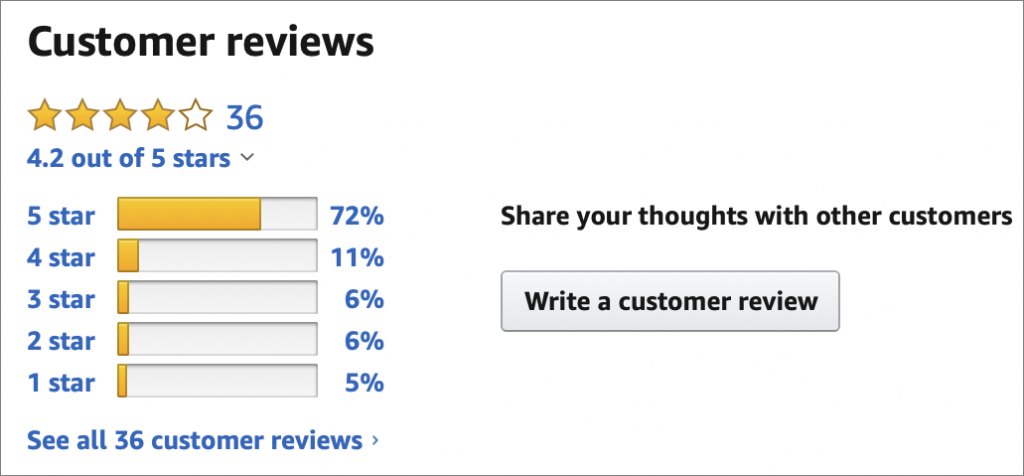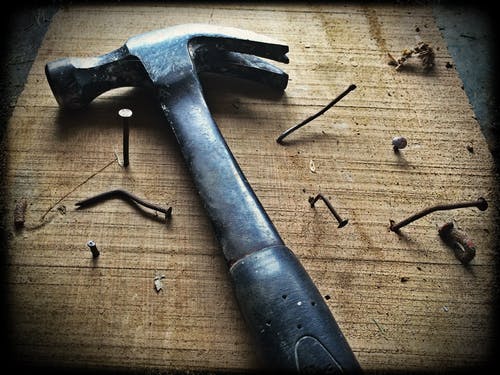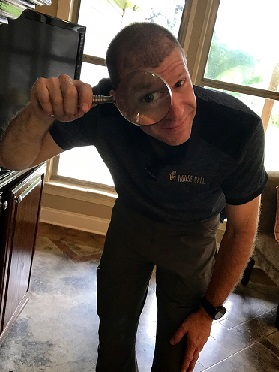It’s quite odd, if you think about it: we are all unique, with various backgrounds, different upbringings and divergent beliefs. But one thing we all have in common is that (almost) everyone hates dealing with salespeople. Looking to get a new vehicle: accosted by a car salesperson. Shopping for insurance: endless phone calls from insurance brokers. Need a new refrigerator: a 17-year-old Best Buy “white goods associate” comes running up to you. They’re everywhere. You can’t pull out your credit card without being accosted by a salesperson.

While we cringe at the thought of having to deal with a salesperson, we must admit that it would be difficult to walk away with our new car, find the right insurance policy or buy that brand-new fridge without the help of that salesperson we’re trying our hardest to avoid. Salespeople play an important part in the process of buying the things that we need. The best salespeople are able to do their job without making their clients cringe every time they approach.
What’s this got to do with me
So, what, you may ask, does talking about being a salesperson have to do with me? After all, I’m a home inspector, not a salesperson. I’m there to tell the buyers about the house, not to sell them on whether or not they should buy it. That’s the real estate agents’ job, and the best thing I can do is to stay as far away from selling them on the house as possible.
Now, don’t get me wrong. I agree with you 100%. Selling the house is the responsibility of the real estate agent, and the best thing a home inspector can do is to keep their nose out of that side of the business. Explain what you’ve found on your inspection, answer any questions related to your findings and get the hell out of there. Let the real estate agent do their job and you’ll keep yourself out of trouble.
But look at it this way: The reality is that anyone that runs a small business is a salesperson. Again, you may be tempted to answer that you’re not a salesperson, you’re a home inspector.
I have always said that everyone is in sales. Maybe you don’t hold the title of salesperson, but if the business you are in requires you to deal with people, you, my friend, are in sales.
Zig Ziglar
What am I selling?
“If you’re so convinced that I’m a salesperson, then what, may I ask, do you think I’m selling?”
We typically look at a salesperson as someone with a product to push. It’s difficult to imagine a home inspector as a salesperson. We think of ourselves as simply providing a service (inspecting a house) for our clients. We’re not there to sell something to the buyers. We don’t go from explaining the condition of the roof to trying to convince them that they need life insurance (at least I hope you’re not doing this on your inspections.)
The fact is that every one of us is a salesperson, every day of our lives. No matter what we do, no matter where go, no matter who we’re talking to, if you’re a small business owner, you’re always in salesperson mode. Everything you do, everything you say, every time you post something on your social media accounts, whether you’re cognizant of this fact or not, you help to make the case to a potential client why they should (or should not) hire your company to provide a professional service.
Think about it. We define a salesperson as someone with a product to push or a service to sell. As the owner of a small business, there is one main product that we should be focused on selling: our services.
Stop and consider this: in a service-based industry, we’re the only product that we have available to sell. We offer our knowledge, our service and our commitment. Whenever we try to convince a new client to use our services, what is it that we’re selling? We’re selling ourselves. We try to get them to realize that we provide a better service than our competitors. That we have more knowledge. That we have more relevant experience. That we care more about or clients than those other guys do.
Me. Use me. I’m the one you want.
We’ve all had experience with salespeople. Sometimes the experience was enjoyable, and the whole transaction flowed smoothly. Other times it was right up there with the most uncomfortable experience we’ve ever suffered through. We can all remember a specific interaction with a salesperson that made us feel uncomfortable. The experience was awkward, the person made us feel uneasy, and we probably ended up leaving the store without completing the transaction or making a purchase.
We’ve undoubtedly also had pleasant encounters with competent salespeople, where the buying experience was easy and painless. Everything seemed to be stress-free, you calmly made your purchase and were happy and content with the whole process. You were probably so pleased that you left that salesperson a good review and recommended them to your friends as well.

Two different outcomes
Think back on these divergent experiences. We were in both situations for the same reason: there was something that we wanted to buy. All we had to do was find someone to help us navigate the process of exchanging our hard-earned money for the right to leave with our newfound treasure.
What could have made these two (supposedly similar) instances so dramatically different? In one instance, we walked away with less money in our pocket, but we were happy (with our newly purchased item.) The other time, we left with our money still in our pocket, but we were upset because we didn’t get a chance to spend it the way we wanted.
What was it that caused us to have such divergent experiences? Obviously, the difference comes down to the quality of the salesperson. One was good at their job, while the other one frustrated you and kept you from parting with the money you had intended to spend.
But, let’s dig a little deeper than that. There must be some underlying reason why one of the salespeople was successful in getting you to happily part with your hard-earned money, while the other one succeeded only in pissing you off?
Only one reason
Ironically enough, the difference between them can be summed up in one word: confidence. When a salesperson has confidence, things change dramatically. They cease to be just a salesperson, and become almost a mentor or a guide, offering valuable insight into a product that will provide some type of benefit to your life.
That’s where we come in as home inspectors. It’s our job to provide our clients with insight and education so that they understand the value that our product (and their purchase) provides to their lives.
Again, you may ask, what kind of product is it that I’m selling? My clients aren’t leaving with a box filled with the amazing things they’ve bought from me. They only thing they’re paying for is what I’m telling them about the house.
Bingo. You hit the nail on the head.

That’s the product that you’re selling. Your product is you. Your qualifications. Your knowledge. Your experience. The sum total of your schooling; your previous inspections; your continuing education; the extra reading you did when you didn’t have to; the things you did to for your previous clients; the items you fixed for that elderly couple, even when you had a solid argument why you didn’t need to; your honesty, integrity and convictions.
You are the product.
Once you understand that’s what you’re selling, this is really what your clients are paying you for (whether they realize it or not), things change dramatically.
You are no longer just that salesperson, taking someone’s order or grabbing the right box from the stockroom. You are transformed into something much more. Something that can make a difference in your client’s life. Someone that they trust to help them navigate through their buying decision. Making things easier for them and leaving them with a feeling that they not only got what they’re paying you for, but that they received much, much more.
When you have confidence in your own abilities (you know what to do, when to do it and how to make it look effortless), you become much more that just a salesperson. You become a guide, a mentor of sorts for your clients. You help them move along their chosen path, moving them closer to the goal they’re trying to reach.
In our case, as home inspectors, we help them become comfortable with their decision to buy a specific house. We explain exactly what they’re getting and what they can expect in the near future.
If we do our job right, we’ve not only helped our clients make a better-informed decision, we’ve also made them feel happier about the whole process. And just like you left a good review for that salesperson who helped you so much, good deeds always have a way of coming back to you in the end.
Doing a good job is certainly its own reward. But, the good publicity that comes along with it? That’s not a bad reward either.
All things being equal, people will do business with, and refer business to, those people they know, like, and trust
Bob Burg
I welcome all feedback (both positive and negative) on this post.
Please take a moment to leave a comment below. Thank you!
CLICK HERE to sign up for a weekly email about the newest happenings in the home inspection industry. No spam. We promise.
Want to be an Influencer in Your Field? Share This Post!
Thanks, Joe

